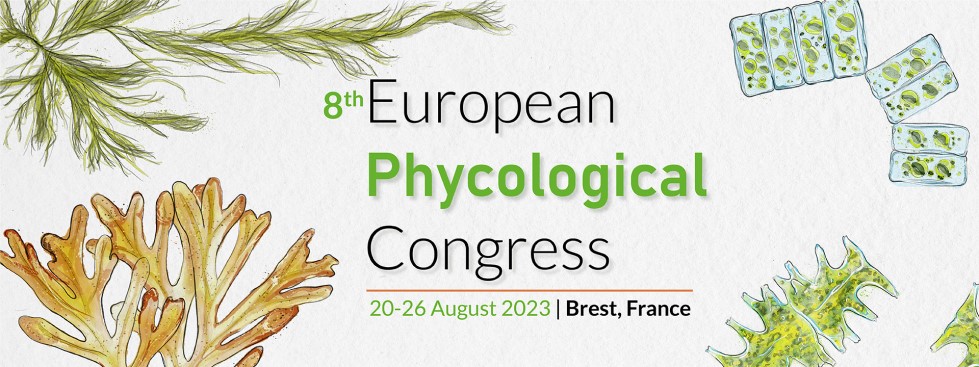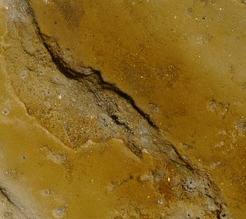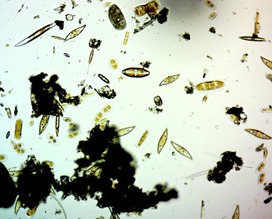
|
|
|
WorkshopsSome workshops all running on half day (up to 4h) will be proposed on the Wednesday 23rd August 2023. Information on these workshops are presented below with contact details of the workshop organisers. Feel free to contact directly the workshops organisers if needed.
It is estimated that only 50% of the world’s seaweed biodiversity has been discovered or described, yet being able to identify species, place them taxonomically and understand their phylogeny is fundamental to many other branches of science. Having something seemingly simple as a check-list for a region or country is the foundation for determining distributions, environmental monitoring, marine management and conservation, connectivity, searching for new cultivars for aquaculture, understanding chemistry and ecology, defining seaweed communities and habitats, cultural and societal aspects, citizen science and much more. This workshop will focus on addressing fundamental gaps in seaweed biodiversity knowledge. It will bring together members of the global taxonomic and related community to build on ‘Towards a global strategy to address fundamental gaps in seaweed taxonomic knowledge’ which was held at the 24th International Seaweed Symposium (Tasmania, Feb 2023). This first workshop involved identifying seaweed groups that were in particular need of a global effort to develop robust phylogenies. Topics included resolving names, sequencing types, molecular approaches, commercial names, long term legacy and related aspects. The aim of this second workshop is to work on the logistics of this project. There will be at least one presentation on the project and a second covering types etc. Preparation will take place before the project to organise work package topics and other activities. Workshop organisers: Prof. Juliet Brodie, Natural History Museum, London, j.brodie@nhm.ac.uk
Microphytobenthos is an essential component of the coastal and estuarine ecosystems functioning, especially under temperate latitudes. It is a major component of the primary production and as such supports local and regional economics (such as oyster culturing and fisheries) and many ecosystem services (see this Frontiers Research topic). The workshop will be dedicated to the biology, physiology and ecology of microphytobenthos, a community of several microalgal groups inhabiting coastal and estuarine intertidal and shallow subtidal sediments. The goal of the workshop is to gather scientists working on microphytobenthos for drawing a current picture of the research in Europe and beyond, through short talks presenting new data and projects. The aim is also to discuss future tracks of research and to gather potential partners for future projects, especially at the European level. The workshop will be held over half a day (morning of Wednesday 2023/08/23) at the Brest Arena (site of the EPC8). The first part will be dedicated to talks from two experts in the field, followed by about 8 talks by young scientists (Ph.D. students and post-docs) illustrating the diversity of current research on microphytobenthos. The second part will be dedicated to a general discussion, especially focused on current and future challenges in microphytobenthos research. Keynote lectures:
Workshop organisers: Johann Lavaud, LEMAR Lab, UBO-University of Western Brittany-France Contact for info and talks: Johann Lavaud, johann.lavaud@univ-brest.fr
Since its first record on European coasts of Strait of Gibraltar in 2015, the brown Pacific seaweed Rugulopteryx okamurae has rapidly widespread along southern coasts of Spain, exhibiting an aggressive invasive behavior on native communities. This new invader homogenizes seabottoms, drastically reducing biodiversity, and producing important economic impacts on fisheries and for local governments, derived from the huge amounts of biomass drifting in the sea and on the beaches. Geographical distribution models predicted other European coasts to be highly favorable for the settlement of the species, which has already been confirmed, with the recent invasion of R. okamurae on Mediterranean coasts of France (Marseille), Portugal (Azores and Madeira) and Canary Islands (Spain). The presence of the species in several European countries together with Northern Africa, becomes R. okamurae in a common threat to Mediterranean and Atlantic native biodiversity, which demands joint efforts for an efficient management to minimize its ecological and economic impacts and expansion. This workshop aims to be the first call for cooperation and information exchange of researchers, managers, and stakeholders for a better management of this new invader at European level. The global situation of the species in the different invaded areas will be presented, including information on geographical distribution, evaluation of ecological and economic impacts on the affected countries, identification and management of introduction and dispersal vectors, invasibity of R. okamurae and invasibility of native communities, as well as potential management strategies at European level. The structure of the workshop will consist in a first part including communications of researchers from the different invaded areas (Spain, Morocco, France and Portugal) and a round table to discuss common problems and explore research and management potential synergies among participants. Workshop programme: download here Workshop organiser: María Altamirano, Universidad de Málaga, Spain, altamirano@uma.es
Diatoms are the most species-rich algal class with estimated ≥ 100,000 species. They contribute to 20% of global carbon fixation and oxygen production. However, with genomic information from only about 10 diatoms, our ability to harness their unique biology is very limited. Consequently, this project will sequence 100 diatom species for providing unique insights into their roles as key players for capturing carbon dioxide and as the foundation of diverse aquatic food webs. These insights will also be critical for advancing diatom-based biotechnology and synthetic biology platforms. This workshop will give an overview about this project and discuss preliminary results. It will also address issues from diatom cultivation to sequence analysis. Informal setting with at least 2 talks and open discussion. Everyone is welcome to join and also to present. Length: up to 3 hours with a break. Workshop organisers: Thomas Mock, School of Environmental Sciences, University of East Anglia, Norwich Research Park, NR4 7TJ, UK, t.mock@uea.ac.uk
The issue of drifting Sargassum is of current interest. The organization of a workshop would allow the community working on these organisms to meet and exchange ideas. Fundamental research on the genus Sargassum which presents drifted species: biology, ecology, physiology,… Applied research on the genus Sargassum which presents drifted species: valorization of huge biomasses (in several sectors), predictions of beachings,… The workshop will take place in the form of two round tables (duration: 1h30 each): A short presentation will be given at the beginning of each round table and then each round table will be moderated by a facilitator and each participant will be able to present their knowledge/results during each round table. Everyone is welcome to join! Workshop organiser: Valérie Stiger-Pouvreau, LEMAR-IUEM-UBO, valerie.stiger@univ-brest.fr |



